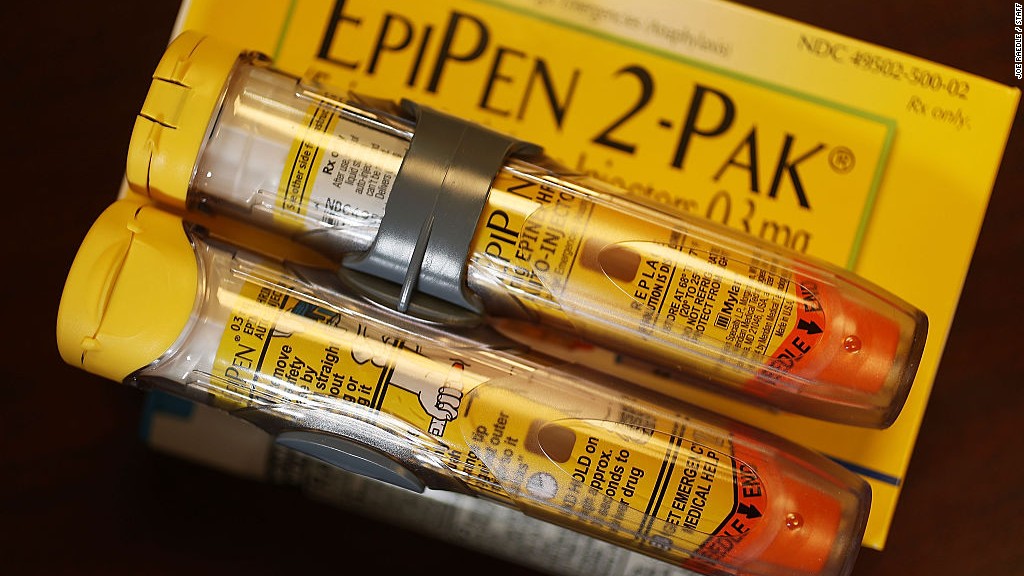
Help for parents outraged by skyrocketing EpiPen prices could be coming as soon as next year.
A generic alternative for the lifesaving allergy treatment is being developed by Teva Pharmaceuticals (TEVA). The company has indicated the generic treatment may arrive as early as next year, creating a cheaper alternative to EpiPen, which has cornered an estimated 94% of the market.
In fact, some Wall Street analysts believe the national outcry over the 400% increase in EpiPen prices may ultimately speed up the FDA approval process for an affordable replacement.
"We suspect FDA will be under pressure to enable [a] more competitive market," Bernstein analyst Aaron Gal wrote in a research report on Thursday.
Gal predicted the FDA's review of Teva's alternative may be "accelerated." He added: "Questions of 'what is close enough' may be viewed differently."
The FDA declined to comment specifically on the generic EpiPen approval process, citing agency policy. However, the FDA noted that it automatically speeds up review of first generic drug applications, while ensuring these drugs are as "safe and effective as their brand name counterparts."
Teva's generic drug was delayed after the FDA identified certain "major deficiencies" in February. The exact cause of the agency's concern is unknown.
However, Teva directed CNNMoney inquiries to the company's previous statements that the launch could still come as early as 2017. Teva declined to comment specifically on the controversy.
Related: EpiPen CEO: Blame the 'broken' system, not me
Irina Koffler, an analyst at Mizuho, said the key will be how serious the issue was that delayed Teva's FDA application.
"If it is something easily correctable, then I'm sure FDA can allocate additional internal resources to expedite the review," she said.
On the other hand, a more complex problem may take time. And in the end, the FDA's first priority is safety, not cost.
The national uproar has clearly changed the landscape since the FDA last looked at Teva's generic candidate. Political pressure is building.
Democratic presidential nominee Hillary Clinton this week called on EpiPen maker Mylan (MYL) to immediately cut the "outrageous" price of the treatment. A bipartisan group of five U.S. senators, in a letter to the FDA this week, pressed the agency on whether any "barriers" exist to approving safe alternatives to the EpiPen. The lawmakers also asked the FDA if it has looked into over-the-counter EpiPen alternatives.
"This is a big deal," Evercore analyst Umer Raffat said about the letter to the FDA.
Still, Raffat and some other analysts believe a generic EpiPen may not be approved until early 2018 -- or later. "I think we're some time away from Teva generic," he said in an interview.
Related: AIDS drug that spiked 5,000% is STILL pricey
The EpiPen controversy, fueled by a grassroots social media campaign by parents, centered on how prices have soared to about $600, compared with below $100 in 2009.
EpiPen maker Mylan responded on Thursday by providing savings cards worth $300 to patients who have to pay full price out of pocket. Heather Bresch, the embattled Mylan CEO, attempted to shift the blame to a "broken" health care system she said "incentivizes higher prices."
However, Bernstein's Gal notes that Mylan jacked up prices in November, just a month after Auvi-Q -- EpiPen's main rival -- was pulled off the market. Mylan then raised prices another 15% in May, translating to a roughly 27% year-over-year price hike.
"With competitors out of the market, Mylan was in a position to price up EpiPen, which they did," Gal wrote.


